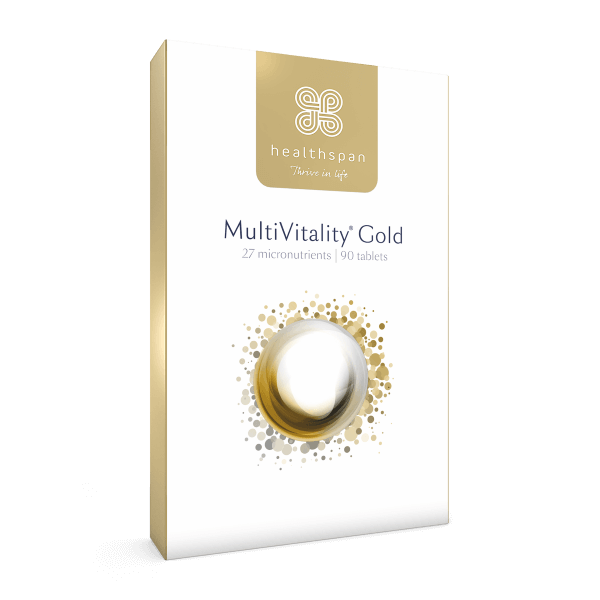We all want to feel healthier. Here are five simple ways to make it happen – starting today.
1. Drink more water
Our bodies are made up of around 60 per cent water (and our brains are actually around 74 per cent), so to stay in optimum health we need to be keep hydrated.1
A study from the University of Barcelona found that being just two per cent dehydrated – which probably won't even register as making you feel thirsty – makes concentrating and functioning harder.2
It's also helpful to know that as we age our ability to detect thirst diminishes, so keeping an active eye on how much we're drinking and counting our glasses is even more important.
The European Food Safety Authority recommends 2.5 litres a day for men and two litres for women, with 70-80 per cent coming from drinks and 20-30 per cent from food (think celery, cucumber, watermelon, tomatoes and grapefruit).
2. Get more sleep
Over 63 per cent of us are unhappy with the amount of sleep we get and 74 per cent actively worry about not getting enough.3
Experts suggest that we get ideally between seven and nine hours a night. Dipping below this eats into the REM (rapid eye movement) phase of sleep, making it harder to take in new information, think clearly or solve problems during the day.
Furthermore, being regularly sleep-deprived puts us at greater risk of conditions like heart disease and diabetes, as well as mood disorders like depression and anxiety.
In addition to setting a regular sleep schedule, exercising regularly and avoiding caffeine after midday, studies suggest that there are supplements you can try.
Magnesium, for example, is a mineral involved in the production of melatonin (a key hormone involved in sleep). One small but significant study showed that those who took a magnesium supplement every day for eight weeks gained an extra 18 minutes of sleep a night versus placebo.4
Research from the University of Colorado also suggests prebiotic fibre (like artichoke or an artichoke supplement) could help you to an improved night's sleep – particularly during times of stress.5

Daytime drowsiness and struggling to concentrate or retain information are common symptoms of insomnia. Rob's Hobson's guide to combatting insomnia can help.
3. Increase your vitamin and mineral levels
Feeding your body the vitamins and minerals it needs is essential to keep you fit and healthy.
Rather than fad diets, a long-term, sustainable eating plan is the aim. The Mediterranean diet is arguably one of the best, focusing on omega 3-rich oily fish, nuts, seeds, pulses and a wide variety of nutritionally dense fruit and vegetables.
Of course, with the best will in the world, no one's diet is perfect, so a multivitamin can come in useful – particularly as we get older and our bodies become less efficient at absorbing certain vitamins and minerals.

MultiVitality Gold
One-a-day health support
- The whole spectrum of vitamins and minerals in one tablet
- Suitable for vegetarians and vegans
- Protect yourself from nutritional deficiencies for just 10p a day
4. Take steps to get fitter
Exercising regularly helps to significantly lower your risk of health problems like depression, type 2 diabetes, cardiovascular disease and dementia.
Despite this, a recent study from Public Health England (PHE) found that four out of 10 adults in England (41 per cent) don't even manage to fit in a short 10-minute brisk walk once a month.6
Walking is one of the easiest forms of exercise to fit into your life without it seeming like exercise – whether it's walking to the shops, taking a stroll with a friend rather than meeting for coffee or setting up walking meetings.
Work on gradually increasing your walking time and / or speed, or try incorporating different hills into your route.
5. Track your health
Do you know your cholesterol levels, blood pressure and weight? These numbers are all important indicators of where to focus your efforts.
Keeping a log of your progress in these areas is also an excellent way to stay motivated. For example, a US study involving overweight and obese adults revealed that those who weighed in daily lost around two kilos more than those who didn't.7
Muscle mass, bone density (which can show if you are at risk of osteoporosis), visceral fat (the type that is stored around organs, putting you at increased risk of heart disease, Alzheimer's and stroke) and your BMI (Body Mass Index) can all be measured, too.






